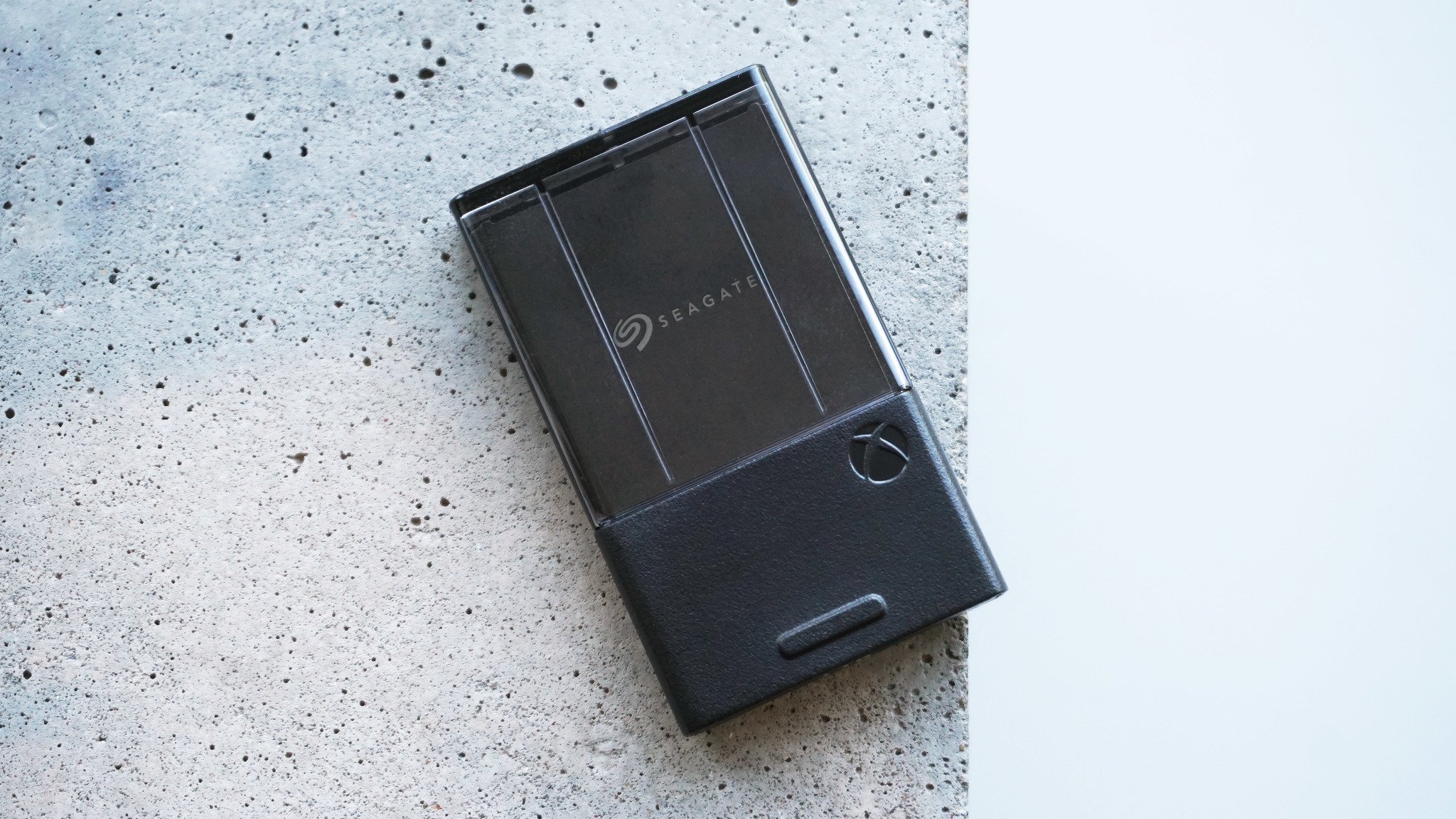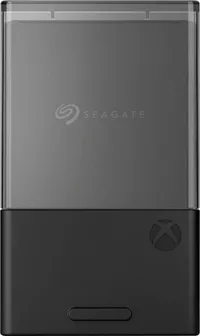Windows Central Verdict
Microsoft and Seagate partnered up on a slick memory card-style SSD expansion for Xbox Series X and Xbox Series S, filling demand where standard hard drives simply don't cut it. It's an almost-perfect solution that seamlessly expands your Xbox console, though it's hard to justify that high price tag.
Pros
- +
Plug and play operation.
- +
Seamless integration with Xbox Series X|S consoles.
- +
Has been extremely reliable and failure proof over the past several years.
Cons
- -
Very pricy for what it is.
- -
There's no guarantee it'll be compatible with future Xbox consoles right now, which might be around the corner.
Why you can trust Windows Central
It's been some time since Microsoft launched the Xbox Series X and Xbox Series S consoles, its duo of next-gen gaming devices, promising the latest leap in power for the living room. There are also more games than ever before, but with file sizes on the rise, each eats further into your available storage.
Xbox consoles come with 512GB or 1TB of space out of the box, meaning storage space has quickly become a precious commodity. It's an inescapable reality of the latest generation, with Microsoft pitching accessories like the Xbox Expansion Card as the solution. Developed alongside Seagate, this tiny solid-state drive (SSD) is a seamless way to expand Xbox storage, using the same cutting-edge internals as the console.
The Seagate-made Xbox Expansion Card is a hard sell. It's an almost-perfect storage setup, delivering fast speeds in an easy, plug-and-play format. But it also costs a lot of money even after tons of price cuts, making this prohibitively expensive to many would-be buyers. But if you can put down the cash, it's an upgrade that works great, doubling as an investment with long-term benefits. It is likely to get strong Black Friday treatment too as we head into the deals season.
The Seagate Xbox Storage Expansion Card starts at $159 on Amazon, and here's our review to help you figure out whether it's worth the price tag.
Seagate Expansion Card for Xbox | $159 at Amazon
The Seagate Storage card for Xbox Series X|S consoles is pretty much the only option available to expand the amount of games you can install at any one time, besides opting for slow deep USB external options. As we head to 2025, we're happy to report that it is still incredibly reliable, and likely your best option. Particularly if you can grab it on sale during Black Friday or Amazon Prime Day.
👀 See at: Amazon
Seagate Storage Expansion Card for Xbox Series X|S: Price and availability
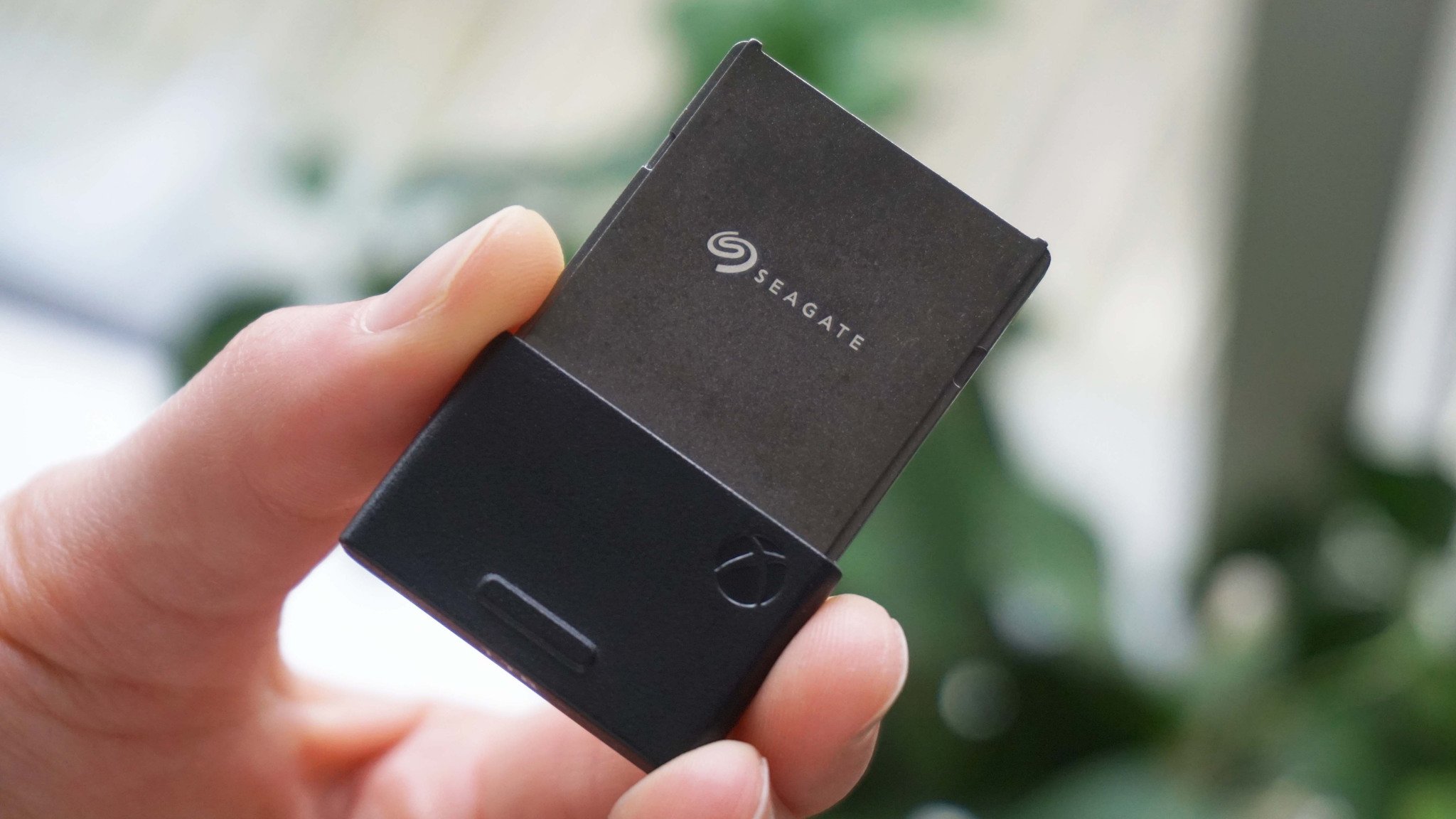
Seagate's 1TB Xbox Storage Expansion Card first launched in late 2020. The firm has since launched 512GB and 2TB cards, providing identical performance across multiple capacitates and price points.
The 1TB Xbox Storage Expansion costs $159.99, down from its original retail price of $219.99 in the U.S., with its 2TB counterpart priced at $359.99, respectively. Popular U.S. retailers like Amazon, Walmart, Best Buy, and GameStop stock 1TB and 2TB cards. There are 512GB card options available at some retailers, but they seem to be incredibly rare to find in 2024.
We've previously seen large discounts on 1TB and 2TB expansion cards, offering some great savings, particularly during deal events like Black Friday and Amazon Prime Day.
Microsoft has expanded the options available beyond the Seagate brand to also include WD_Black's gaming brand. However, the proprietary nature of the cards means that few vendors seem particularly interested in offering alternatives. The WD_Black options may net you a slight saving at times, but the differences are almost non-existent.
We'll continue to round up the best prices on Xbox Expansion Cards, where available.
Seagate Storage Expansion Card for Xbox Series X|S: What's good
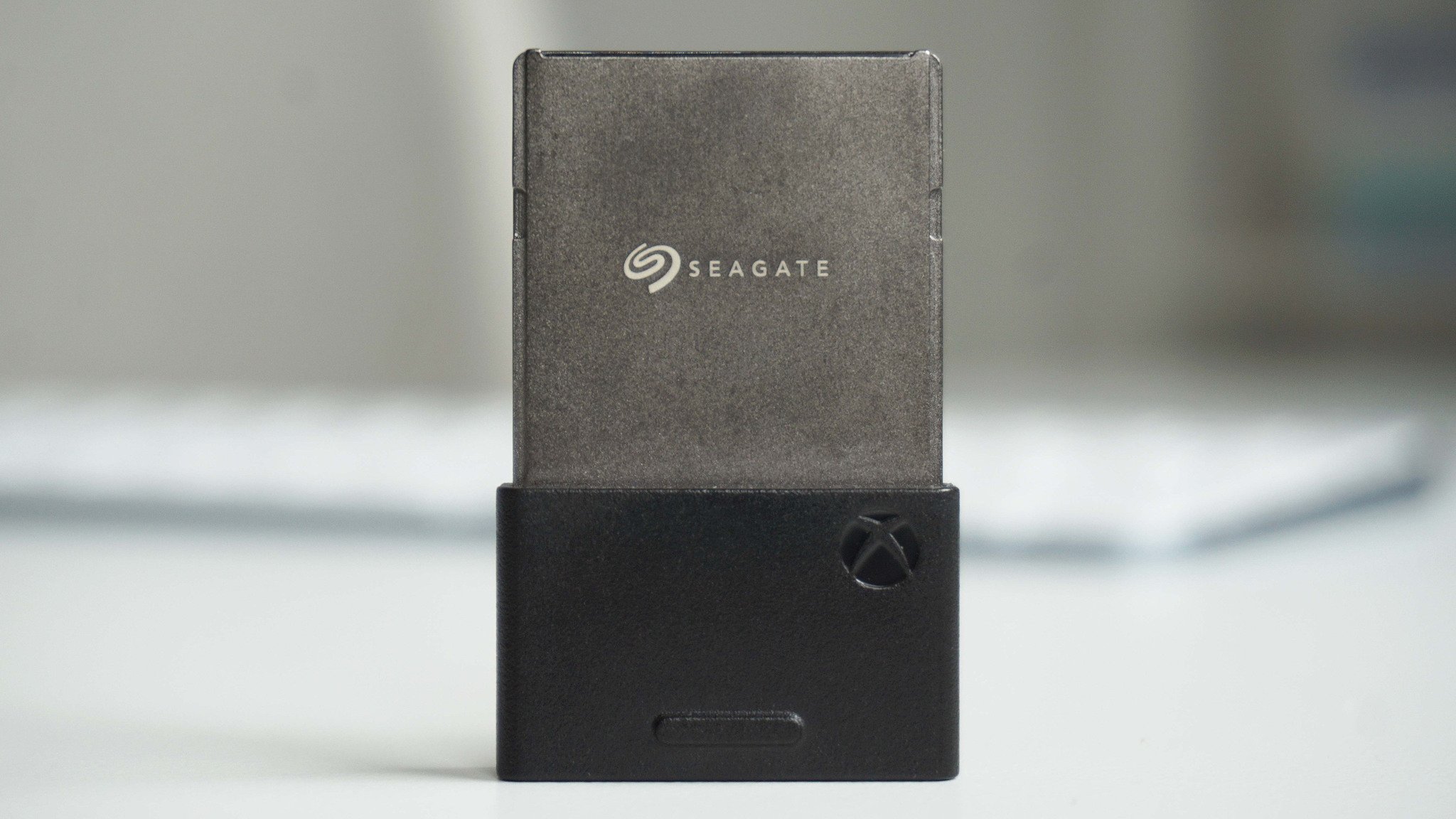
Beyond faster processors and new technologies, Xbox Series X and Xbox Series S also added new solid-state storage, which is quicker and more capable than the hard drives of the past. Microsoft's chosen solution, utilizing PCIe 4.0 tech, sits among the best storage options available, even in the enthusiast PC space. While speeding up load times, it also establishes a baseline across the generation, allowing for more storage-intensive games.
Microsoft has found itself in an all-new predicament. Xbox Series X and Xbox Series S don't have multiple storage options, so expandable storage is the only option. In the past, it was as easy as plugging in your external hard drive over USB. But when so many games rely on these new SSDs, what can you do if the best Xbox external drives just don't cut it?
While Microsoft still supports external USB drives, games can't be played directly from storage due to slower read and write speeds. While backward-compatible games work as usual, you'll need to shuttle Xbox Series X|S Optimized titles onto the internal drive when in use. While it's a viable workaround, copying files back and forth can be painful, especially with some games surging far beyond 100GB.
For now, the Xbox Storage Expansion Card is the proposed (and only) remedy, compacting the same speedy solid-state storage into standalone add-ons. It couldn't be more seamless on paper, adding an identical, secondary NVMe drive to the available storage. While Microsoft and Seagate first teamed up on a single 1TB Storage Expansion Card, the partnership has since introduced 512GB and 2TB capacities.
While I personally held off investing in an Xbox Expansion Card for months, I finally caved after almost a year with the console. Even the 1TB available with Xbox Series X can prove tight, downloading and deleting games regularly just to fit a couple of new releases. Storage management was quickly becoming a frequent headache, which Microsoft's official Expansion Cards should solve.
All the latest news, reviews, and guides for Windows and Xbox diehards.
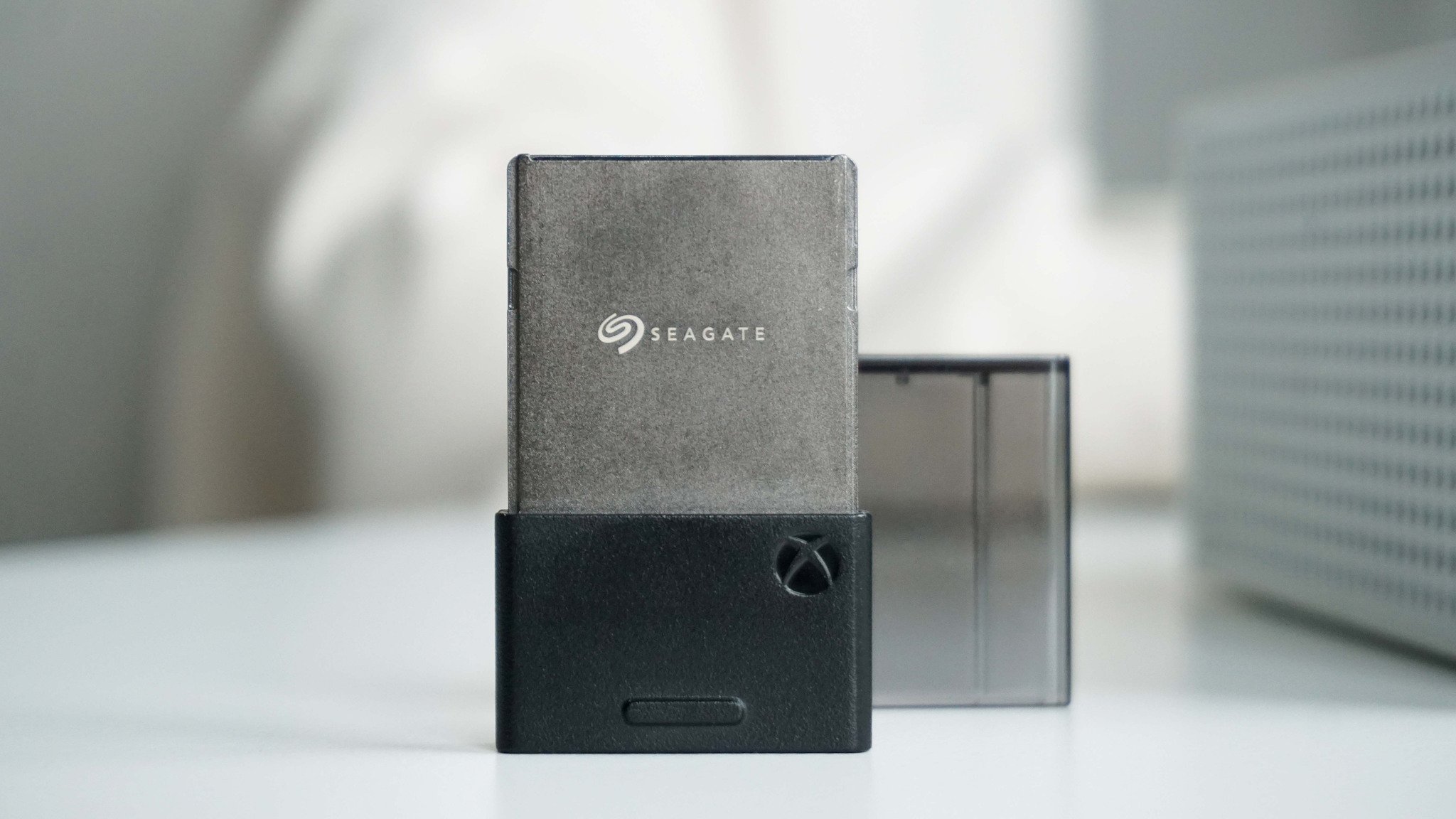
| Category | Xbox Expansion Card |
|---|---|
| Compatibility | Xbox Series X|S |
| Capacities | 512GB, 1TB, 2TB |
| Storage | PCIe 4.0 NVMe SSD |
| Dimensions | 2.08 x 1.24 x 0.30 inches (31.6mm x 52.95mm x 7.8mm) |
| Weight | 1.06 oz (30g) |
| Price (USD) | $159, $359 |
Looking past the upfront cost, the Storage Expansion Card easily hooks up and expands Xbox Series X or Xbox Series S consoles. Microsoft's DIY approach means every new Xbox console has a dedicated port for its proprietary cards, with the same inoperability expected across future Xbox revisions. Using PCIe 4.0 provides a direct line to the CPU, translating to ultra-fast speeds on the spec sheet.
The card measures a fun-sized 53mm by 32mm, based on CFexpress standard, almost on par with the average USB thumb drive. Unlike most external drives, it's cable-free and only slightly protrudes from the console's rear, preventing unwanted clutter around your desk or entertainment center. Each drive also comes with a protective sleeve, making these cards easy to move and store.
Much like existing USB drive support for Xbox consoles, Microsoft designed Storage Expansion Cards to be simple plug-and-play accessories. Pressing in the card sounds an audible click, with an on-screen notification once the card is detected by the console. The extra storage is instantly available to use, with the option of installing future content onto the internal drive or the expansion.
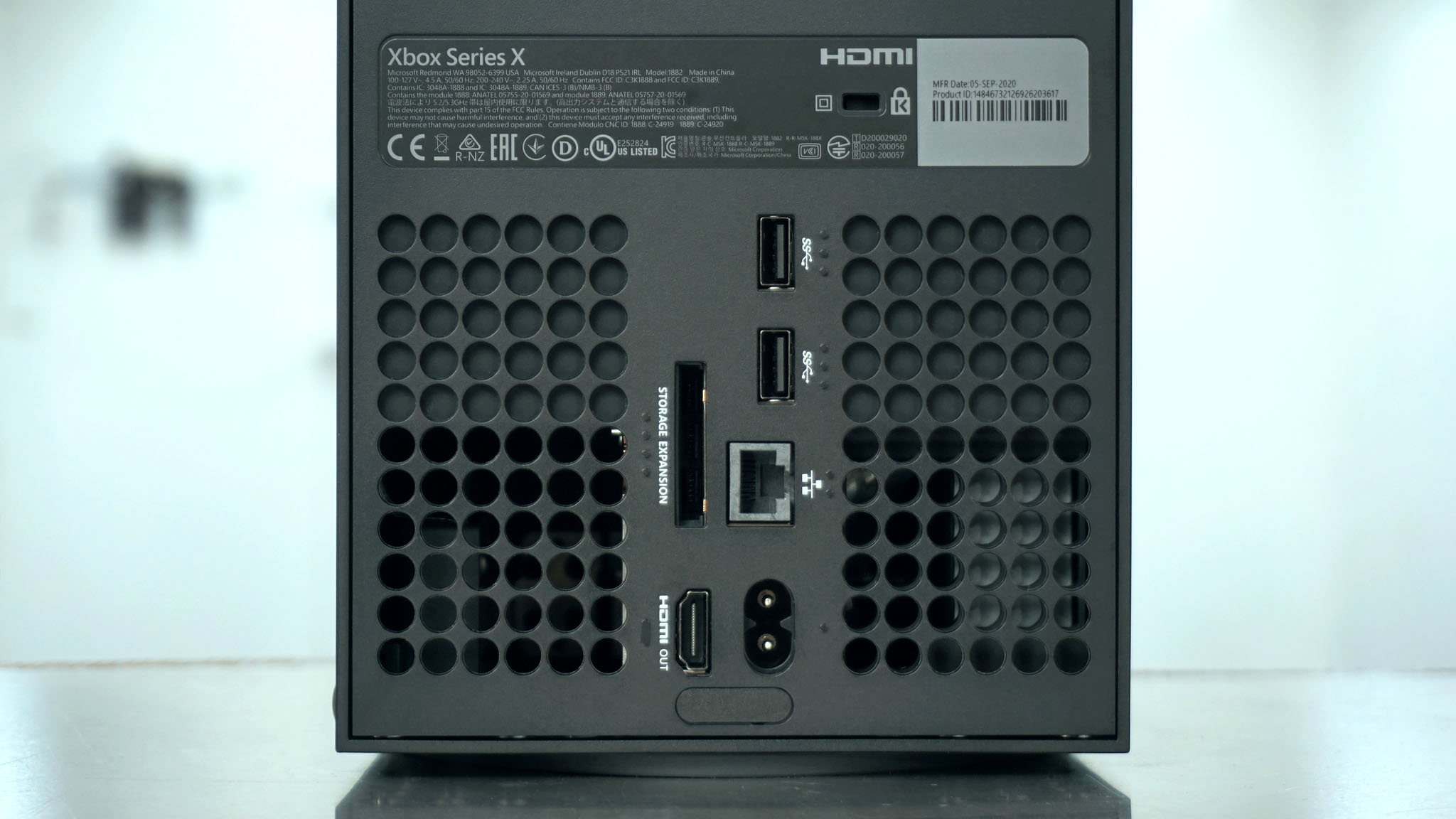
I also have zero doubts about Seagate's underlying drive tech, with overall game performance or loading times on par with the internal SSD. Most importantly, these cards play all games designed for Xbox Series X|S, including those incompatible with USB external drives. It removes all the hassle surrounding USB drives, making this a completely seamless extension of the stock drive. Backward-compatible Xbox One, Xbox 360, and original Xbox games also work, with reduced load times in some instances.
If you're happy frequently copying files between traditional USB drives, the Storage Expansion Card isn't for you. Seagate's SSD instead looks to match what's included with your console out of the box, faster, and more elegant to save time throughout the generation. But should you look to transfer between SSDs, the following figures help directly illustrate those benefits.
| Title | Internal to Expansion Card | Expansion Card to Internal |
|---|---|---|
| Halo Infinite (52.51GB) | 2m 14s | 2m 54s |
| Forza Horizon 5 (102.4GB) | 4m 22s | 4m 13s |
| Call of Duty: Warzone (92.8GB) | 4m 25s | 2m 16s |
All tests performed using an Xbox Series X console with a 1TB Seagate Storage Expansion Card. File sizes for each title accurate as of publication.
While the speeds are incredible, we found experiences can and will differ, even on the same console. While transfers to and from the Expansion Card were significantly faster than anything using USB, transfer rates and the resulting transfer times weren't consistent between tests. While it appears the Expansion Card is generally faster at reading versus writing data, your mileage my vary.
But even with fast speeds, that's not the main reason to buy a Storage Expansion Card. Put simply, it's a way to add more storage without worrying about which games will work or how you'll next move them around.
When Microsoft and Seagate first launched its Xbox Storage Expansion Card in late 2020, our initial review criticized the initial 1TB offering for lacking options. We suggested the duo should release a cheaper 512GB capacity, providing a more affordable alternative to its high entry price. We also hoped a 2TB unit would come to market. Reports later followed, with the Seagate Expansion Card since releasing the two additional capacities.
The expanded range is welcomed, presenting various price points for differing budgets. The 512GB option (if you can find it) caters well to Xbox Series S owners or Xbox Series X owners looking to save. The 1TB remains a solid middle ground — recommended if you can afford it. We probably don't need to tell you if you need the 2TB drive, which best serves enthusiasts with large game collections.
Now that we're into 2024, I'm happy to report that the Seagate Storage Expansion Cards for Xbox Series X|S prove themselves to be incredibly robust. I've heavily abused mine over the years, and found no degradation in performance. I've not heard of a single instance of any of these drives failing, which should prove out their reliability overall. However, there are some other considerations worth being aware of.
Seagate Storage Expansion Card for Xbox Series X|S: What's not good
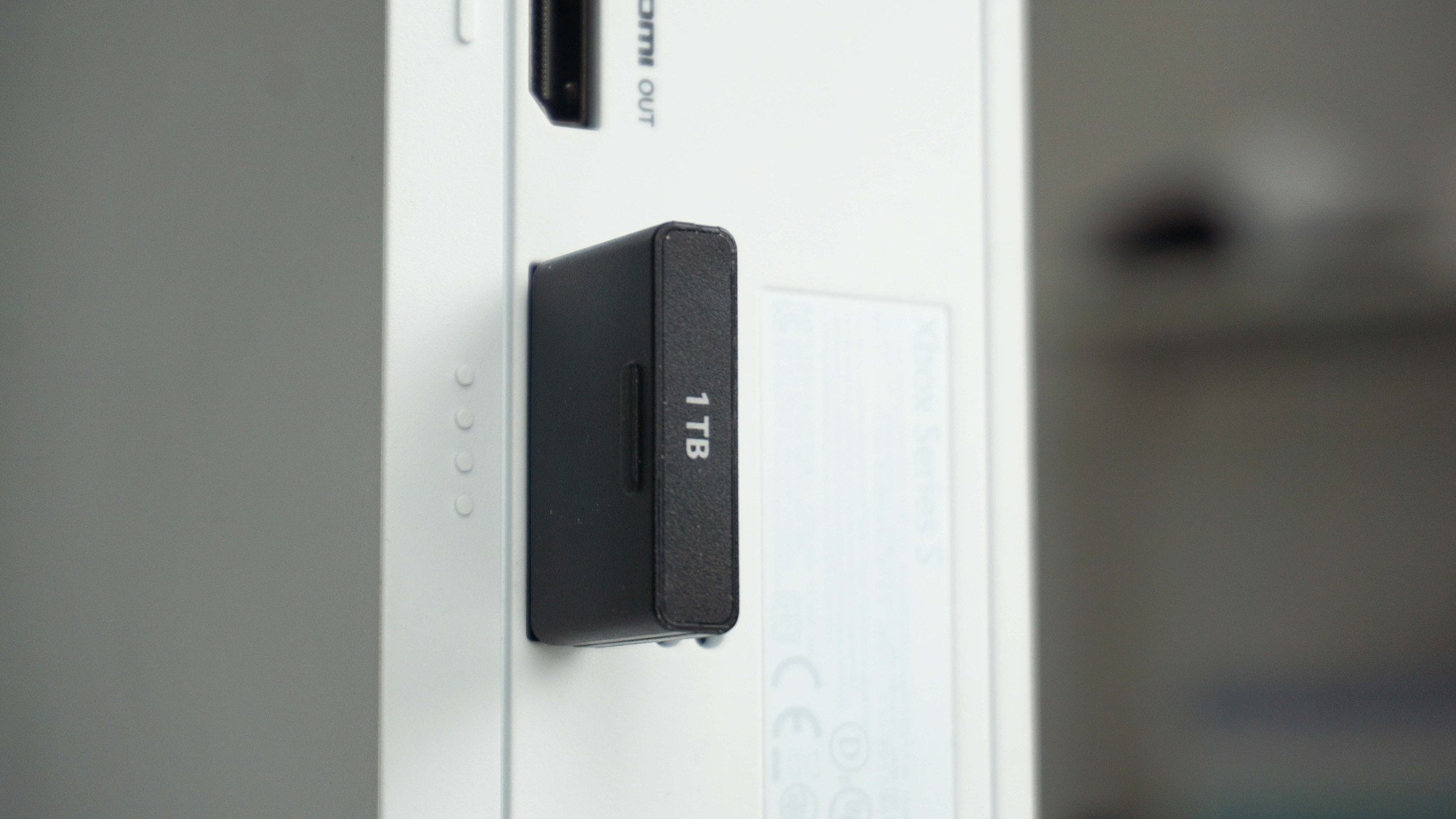
It's hard to find specific flaws in the Seagate Storage Expansion Card as a product, but the price remains a crucial hurdle detracting from its appeal. Microsoft raised the bar from storage this generation, meaning these drives are prohibitively costly, even for the smallest available configuration.
Xbox Series S only includes a 512GB drive out of the box, while Xbox Series X comes with 1TB for now. With the equivalent Expansion Cards available from $159 and $359, doubling the storage almost costs 50% of the console in some cases. It's a hard sell, no matter how you look at it.
Utilizing PCIe 4.0 was always an expensive bet, with today's pricing falling in line with our previous predictions ahead of release. While proprietary in design, pricing isn't far from equivalent PC drives leveraging the same interface. The technology has become more affordable over time, but it's still a bit of a luxury, especially on consoles.
Seagate has driven down the upfront cost through new extra configurations, though USB alternatives remain unmatched in overall value. Competition from WD_Black's own Xbox storage cards has also added competition to the product, particularly around Amazon Prime Day and Black Friday, which has also served to drive down the cost. But costs haven't come down as rapidly as they have for traditional M.2 NVME storage devices, which Microsoft's PS5 competitor uses.
The proprietary design of the Seagate Storage Expansion Cards has its benefits, but the lack of competition makes the price sticky, which sucks for consumers. The cards use standard NVMe drives with commonplace CFexpress enclosures, yet Microsoft bars third-party drives of similar spec at a software level. The Sony PlayStation 5 just uses off-the-shelf M.2 SSDs, reaping the benefits of an open and competitive market. While it makes things simpler for Xbox owners, it's still a shame we have only two options.
Another potential downside here is the fact that, as of 2025, we are getting ever closer to next-gen Xbox consoles. There's no guarantee that Microsoft will maintain compatibility for these cards on the next-gen devices, which are expected to include an Xbox Series X successor and an Xbox "handheld" of some form. If there is indeed a handheld, you'd expect that a card like this would be far too large to properly integrate it. However, there's every chance that the next Xbox traditional box console will keep the drive. We'll just have to wait and see.
Seagate Storage Expansion Card for Xbox Series X|S: Should you buy it?

You should buy this if ...
✅ You want the best storage expansion for Xbox Series X|S
✅ You don't want to move games back and forth from a USB drive
✅ You want a portable drive to move Xbox games around
✅ You have the cash to burn, or found a great deal during Black Friday or Prime Day
You shouldn't buy this if ...
❌ You need more than 2TB of external storage
❌ You want an affordable Xbox storage expansion, and don't mind using USB externals instead
With the latest Xbox consoles adopting high-performance SSDs, Microsoft could've approached expandable storage in a few ways. Landing on these compact cards has provided a seamless solution that's guaranteed to work with all games on the system, even if limiting your options.
I can't say the Xbox Storage Expansion Card is a great deal, even after the price cuts, yet I still wholeheartedly recommend it to those on the fence. Yes, in terms of value, you can add much more space to your console for less with a cheaper USB external drive. But no alternative integrates so well with Xbox consoles, making the complete experience hassle-free. It's a premium product with a high asking price, making it impossible to compare this to anything on the market.
When looking for a seamless storage expansion for your Xbox, eliminating the need to manage storage, the Seagate Storage Expansion Card is unbeaten. There's nothing else that compares, with little to fault, beyond the high asking price. They are frequently on sale, though, so keep an eye out during Black Friday or Amazon Prime Day to grab it a bit cheaper.
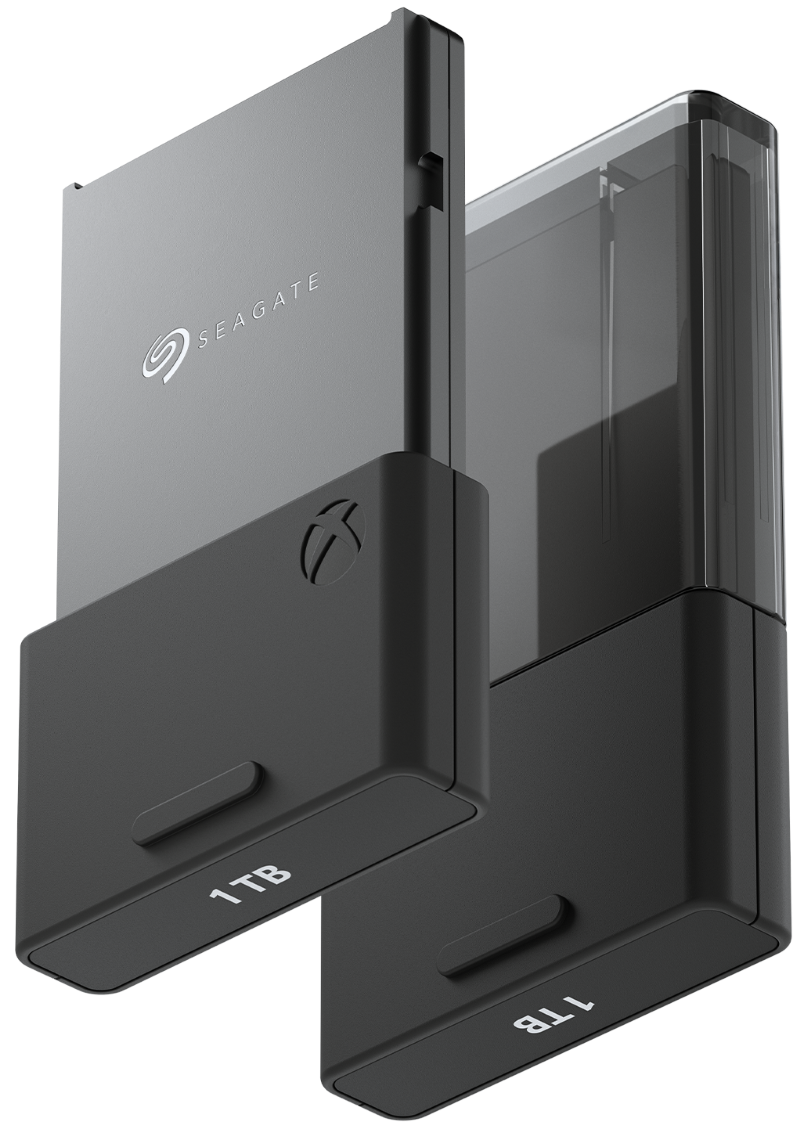
Seagate's Storage Expansion Card is the best way to add more space to the latest Xbox consoles, while avoiding the annoying limitations of USB drives. While it's an expensive investment that might be hard to justify, those who drop the cash won't be disappointed with the returns.

Matt Brown was formerly a Windows Central's Senior Editor, Xbox & PC, at Future. Following over seven years of professional consumer technology and gaming coverage, he’s focused on the world of Microsoft's gaming efforts. You can follow him on Twitter @mattjbrown.
- Jez CordenExecutive Editor
